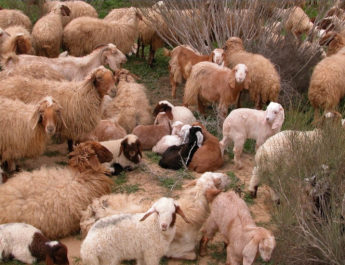1 Timothy 4:1-6, 9-10
A Women’s Lectionary 9
1 Now the SpiritA expresslyB saysC that in laterD timesE some will renounceF the faithG
A “Spirit” = pneuma. From pneo (to blow, breath, breathe hard). This is wind, breath, or ghost. A breeze or a blast or air, a breath. Figuratively used for a spirit, the human soul or part of us that is rational. It is also used supernaturally for angels, demons, God, and the Holy Spirit. This is where pneumonia comes from.
B “expressly” = rhetos. 1x in NT. From rhetos (stated) OR from rheo (to speak, command, make, say, speak of). This is expressly, explicitly, or out-spokenly.
C “says” = lego. This is to speak, say, name, call, command. It is generally to convey verbally.
D “later” = husteros. 1x in NT. Perhaps from hupo (by, under, about, subordinate to). This is latter, afterwards, or last.
E “times” = kairos. This is season, opportunity, occasion. The word chronos is used for chronological time. Kairos is used for spiritually significant time – the right time or appointed time.
F “renounce” = aphistemi. 14x in NT. From apo (from, away from) + histemi (to stand, place, set up, establish, stand firm). This is to remove, repel, refrain, depart from, foment a revolt, repel.
G “faith” = pistis. From peitho (to have confidence, urge, be persuaded, agree, assure, believe, have confidence, trust). This is less about knowing, believing, and repeating a list of doctrines then it is about trusting God. Faith means listening to God and seeking to live a holy life even (and especially) when we don’t understand how everything works or fits together. Faith is about being faithful (trusting and doing) rather than being all knowing.
by paying attentionH to deceitfulI spiritsJ and teachingsK of demons,L
H “paying attention” = prosecho. From pros (at, toward) + echo (have, hold, possess). This is have towards, which is to say to give something your complete attention, beware, be cautious, hold to, turn to.
I “deceitful” = planos. 5x in NT. This is one who leads astray – wandering, deceiving, misleading, an imposter.
J “spirits” = pneuma. Same as “Spirit” in v1. See note A above.
K “teachings” = didaskalia. From didaskalos (teacher, master); from didasko (to teach, direct, instruct, or impart knowledge; in the New Testament, almost always used for teaching scripture); from dao (to learn). This is teaching or instruction.
L “demons” = daimonion. From daimon (evil spirit, demon, fallen angel); perhaps from daio (giving out destinies). This is demon, evil spirit, god of another religion, or fallen angel.
2 through the hypocrisyM of liarsN whoseO consciencesP are seared with a hot iron.Q
M “hypocrisy” = hupokrisis. 6x in NT. From hupokrinomai (to answer, pretend, respond as an actor on stage; figuratively, to lie) {from hupo (by, under, about) + krino (to judge, decide, think good, condemn, determine, pass judgment, stand trial, sue; judging whether in court or in a private setting; properly, mentally separating or distinguishing an issue – to come to a choice or decision, to judge positively or negatively in seeking what is right or wrong, who is innocent or guilty; can imply trying, condemning, punishing, or avenging)}. This is answer, play-acting, or hypocrisy. It is one who acts beneath a mask, i.e. lies or is a hypocrite.
N “liars” = psuedologos. Related to “says” in v1. 1x in NT. From pseudes (false, lying, wicked); {from pseudomai (to lie, deceive, falsify)} + logos (word, statement, speech, analogy; a word that carries an idea or expresses a thought, a saying; a person with a message or reasoning laid out in words; by implication, a topic, line of reasoning, or a motive; can be used for a divine utterance or as Word – Christ); {from lego (see note C above)}}. This is lying or liar. It can be sharing a wrong conclusion because of inaccurate initial assumptions.
O {untranslated} = idios. This is something that belongs to you or that is personal, private, apart. It indicates a stronger sense of possession than a simple possessive pronoun. This is where “idiot” comes from (denoting someone who hasn’t had formal training or education and so they rely on their own understanding).
P “consciences” = suneidesis. From suneidon (to see together and so know, realize, consider, be conscious of); {from sun (with, together with) + eidon (shape, appearance, kind; something observable; form in a literal or figurative sense); from eido (to know, remember, perceive – to see and so understand)}. This is properly to know together. The conscience, found in all, is a moral and spiritual capacity granted by God so that we can understand together what is good and right.
Q “seared with a hot iron” = kauteriazo. 1x in NT. From kausteriazo (to brand, sear, a branding iron); from kaio (to burn, light, kindle). This is to cauterize or sear. It is where the word “cauterize” comes from.
3 They forbidR marriageS and demand abstinenceT from foods,U
R “forbid” = koluo. Perhaps from the same as kolazo (to punish, particularly to punish slaves so that they are restricted or chastised); from kolos (docked, dwarf). This is to hinder or prevent, restrain, refuse. It can be prevent, whether through words or actions.
S “marriage” = gameo. From gamos (a wedding, whether the ceremony, the feast, or the marriage itself). This is to marry.
T “abstinence” = apecho. Related to “paying attention” in v1. 19x in NT. From apo (from, away from) + echo (see note H above). This is to be distant, have fully, abstain, be paid, be distant, be enough. It is having something by detaching it from something else or releasing something else.
U “foods” = broma. 17x in NT. From bibrosko (to eat); related to bora (food); perhaps from bosko (to feed or pasture a flock; figuratively, to nourish spiritually). This is any kind of food in a literal or figurative sense.
which GodV createdW to be receivedX with thanksgivingY
V “God” = Theos. From Proto-Indo-European origins, meaning do, put, place. This is God or a god in general.
W “created” = ktizo. 15x in NT. Probably akin to ktaomai (to get, purchase, possess). This is to build, create, form, shape. It refers to God’s acts of creation.
X “received” = metalempsis. 1x in NT. From metalambano (take or partake, to share, or participate); {from meta (with among, behind, beyond; implies a change following contact or action) + lambano (active acceptance/taking of what is available or what has been offered; emphasizes the choice and action of the individual)}. This is taking, sharing – receiving actively something that has an impact.
Y “thanksgiving” = eucharistia. 15x in NT. From eucharistos (thankful, well favored); {from eu (good, well, well done, rightly) + charis (grace, kindness, favor, gratitude, thanks; being inclined to or favorable towards – leaning towards someone to share some good or benefit; literal, figurative, or spiritual; grace as abstract concept, manner, or action); {from chairo (to rejoice, be glad or cheerful; a greeting); from char– (to extend favor, lean towards, be inclined to be favorable towards)}}. This is thankfulness or thanksgiving. It is active gratitude. It is related to the word “eucharist.”
by those who believeZ and knowAA the truth.BB
Z “believe” = pistos. Related to “faith” in v1. From peitho (see note G above). This is faithful, trustworthy, reliable, sure, or true. It is a fullness of faith. This is the same root as the word “faith” in Greek.
AA “know” = epiginosko. From epi (on, upon, what is fitting) + ginosko (to know, recognize, realize, perceive, learn; gaining knowledge through personal experience). This is to perceive, discern, acknowledge, recognize, know exactly because of direct interaction.
BB “truth” = aletheia. From alethes (true, unconcealed; true because it is in concert with fact and reality – attested; literally, what cannot be hidden; truth stands up to test and scrutiny and is undeniable, authentic). {from a (not, without) + lanthano (unnoticed, concealed)}. Truth is literally that which is not or cannot be concealed. This word covers more than the sense of true versus false. It spoke of truth as that which corresponds to reality – reality as opposed to illusion. Thus, it includes, sincerity, straightforwardness, and reality itself.
4 For everythingCC created by God is good,DD and nothing is to be rejected,EE provided it is receivedFF with thanksgiving;
CC “everything” = pas + ktisma. Pas is all or every. Ktisma is 4x in NT. From ktizo (to build, create, form, shape; God’s acts of creation); probably akin to ktaomai (to get, purchase, possess). This is something that was created – a creature or product.
DD “good” = kalos. This is good, noble, beautiful, correct, or worthy. This is external signs of goodness like beauty, demonstrations of honorable character, showing moral virtues. A different word, agathos, speaks of intrinsic good.
EE “rejected” = apobletos. 1x in NT. From apoballo (to throw off, cast aside; figuratively, to lose or abandon); {from apo (from, away from) + ballo (to throw, cast, place, put, drop)}. This is rejected – something that should be thrown away, cast off.
FF “received” = lambano. Related to “received” in v3. See note X above.
5 for it is sanctifiedGG by God’s wordHH and by prayer.II
GG “is sanctified” = hagiazo. From hagios (sacred, holy, set apart, different other; physically pure, morally blameless, or ceremonially set apart); from hagnos (holy, sacred, pure ethically, ritually, or ceremonially; prepared for worship, chaste, unadulterated, pure to the core; undefiled by sin; figurative for innocent, modest, perfect). This is to make holy, consecrate, sanctify, set apart as holy, purify, venerate.
HH “word” = logos. Related to “says” in v1 & “liars” in v2. See note N above.
II “prayer” = enteuxis. 2x in NT. From entugchano (to encounter, appeal, please, chance upon, confer with, to meet someone in order to consult with them); {from en (in, on, at, by, with, among) + tugchano (root means to become ready; to hit, meet, happen, obtain, chance, perhaps; properly, to hit the mark or be spot on; the opposite of the Greek word for sin hamartano, which literally means to miss the mark); {perhaps from tucho (to make ready, bring about)}}. This is petition or intercession. It can be a request made to the king, a petition for intervention, or a prayer.
6 If you put these instructions beforeJJ the brothersKK and sisters, you will be a good servantLL of ChristMM Jesus,NN
JJ “put…before” = hupotithemi. 2x in NT. From hupo (by, under, about, subordinate to) + tithemi (to put, place, set, fix, establish in a literal or figurative sense; properly, this is placing something in a passive or horizontal position). This is to place under, to sketch an outline, to make known, risk, put before.
KK “brothers” = adelphos. From a (with, community, fellowship) + delphus (womb). This is a brother in a literal or figurative sense. It is also used of another member of the Church.
LL “servant” = diakonos. Perhaps from dia (through, across to the other side, thoroughly) + konis (dust) OR from dioko (to chase after, put to flight; by implication, to persecute or to purse like a hunter after its prey; this can be earnestly pursue or zealously persecute) {related to dio (put to flight)}. This is a servant, minister, waiter, or attendant. It is used for a person who performs a service, including religious service. This is the root of the word “deacon.”
MM “Christ” = Christos. From chrio (consecrate by anointing with oil; often done for prophets, priests, or kings). Literally, the anointed one, Christ. The Greek word for Messiah.
NN “Jesus” = Iesous. From Hebrew Yehoshua (Joshua, the Lord is salvation); {from YHVH (proper name of the God of Israel; the self-existent and eternal one); {from havah (to become) or from hayah (to come to pass, become, be)} + yasha (to deliver, defend, help, preserve, rescue; properly, to be open, wide or free, which implies being safe. So, in a causative sense, this is to free someone)}. This is Jesus or Joshua in Greek – the Lord saves or the Lord is salvation.
nourishedOO on the words of the faith and of the soundPP teaching that you have followed.QQ
OO “nourished” = entrepho. 1x in NT. From en (in, on, at, by, with) + trepho (to bring up, rear, nourish, fatten, nurse; properly, to enlarge through proper nourishment); {perhaps from trope (turning, shifting, a revolution; figuratively, a variation); from trepo (to turn)}. This is to nourish, train, educate.
PP “sound” = kalos. Same as “good” in v4. See note DD above.
QQ “followed” = parakoloutheo. 3x in NT. From para (by, beside, in the presence of) + akoloutheo (to accompany or follow someone, especially the way a disciple does); {from a (with, fellowship, union) + keleuthos (road, way)}. This is to follow, investigate, resemble. It can be to know by conforming to what is found.
9 The sayingRR is sureSS and worthyTT of fullUU acceptance.VV
RR “saying” = logos. Same as “word” in v5. See note HH above.
SS “sure” = pistos. Same as “believe” in v3. See note Z above.
TT “worthy” = axios. From ago (to lead, bring, carry, guide, drive, go). This is related to weight or worth – deserving, suitable, corresponding, due reward.
UU “full” = pas. Same as “everything” in v4. See note CC above.
VV “acceptance” = apodoche. 2x in NT. From apodechomai (to welcome, embrace, receive, approve of; to show hospitality); {from apo (from, away from) + dechomai (to warmly receive, be ready for what is offered, take, accept, or welcome; to receive in a literal or figurative sense)}. This is acceptance, welcoming guests, appreciation.
10 For to this end we toilWW and struggle,XX because we have our hope setYY on the livingZZ God,
WW “toil” = kopiao. From kopos (labor that leads to exhaustion, depletion, weariness, fatigue; working until worn out); from kopto (to cut, strike, cut off; beating the chest to lament and so to mourn). This is working with effort, whether of the body or mind, growing weary, feeling tired, working hard.
XX “struggle” = agonizomai. Related to “worthy” in v9. 8x in NT. From agon (a gathering or contest – as an athletic competition such as a race; also conflict, struggle, opposition or a fight; used figuratively in a positive sense – as fighting the good fight of faith; used in a negative figurative sense for effort or anxiety; properly, refers to a place where people gather, which implies the game or contest); from ago (see note TT above). This is to struggle, strive, or fight. It could be contending to win a prize or against an adversary or in war. It can also mean striving to accomplish something. This is where the word “agonize” comes from.
YY “have…hope set” = elpizo. From elpis (expectation, hope, trust, confidence, faith; expectation whether abstract or concrete); from elpo (to anticipate, welcome, expect; usually to anticipate positively); from elpomai (to anticipate, expect). This is to expect, trust, hope for, or to wait in an active way.
ZZ “living” = zao. This is to live literally or figuratively. It is used for life including the vitality of humans, plants, and animals – it is life physical and spiritual and life everlasting.
who is the SaviorAAA of allBBB people,CCC especially of those who believe.
AAA “Savior” = Soter. From sozo (to save, heal, preserve, or rescue. Properly, this is taking someone from danger to safety. It can be delivering or protecting literally or figuratively); from sos (safe, rescued, well). This is savior, deliverer, preserver.
BBB “all” = pas. Same as “everything” in v4. See note CC above.
CCC “people” = anthropos. Probably from aner (man, male, husband) + ops (eye, face); {from optanomai (to appear, be seen); perhaps from horao (become, seem, appear)}. This is human, humankind. Used for all genders.
Image credit: “Saint Anthony, Tormented by Demons” by Anonyomus (Upper Rhine), circa 1520.




